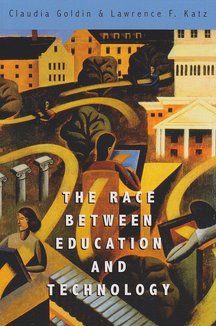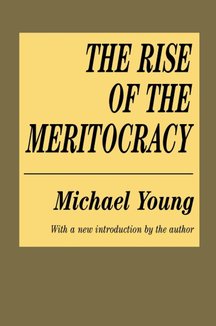Recommended Books

The Race between Education and Technology
Authors:
Claudia Goldin
,
Lawrence F. Katz
ISBN 13:
978-0674035300
An incisive history of American education―its great success in creating prosperity and equality during the twentieth century and its relative decline since the 1970s. “As Goldin and Katz have argued, the 20th century was the American century in large part because it was the human-capital century. Education―knowledge―can help people live better by allowing them to learn from past errors and make new discoveries.” ―David Leonhardt, New York Times This book provides a careful historical analysis of the co-evolution of educational attainment and the wage structure in the United States through the twentieth century. The authors propose that the twentieth century was not only the American Century but also the Human Capital Century. That is, the American educational system is what made America the richest nation in the world. Its educational system had always been less elite than that of most European nations. By 1900 the U.S. had begun to educate its masses at the secondary level, not just in the primary schools that had remarkable success in the nineteenth century. The book argues that technological change, education, and inequality have been involved in a kind of race. During the first eight decades of the twentieth century, the increase of educated workers was higher than the demand for them. This had the effect of boosting income for most people and lowering inequality. However, the reverse has been true since about 1980. This educational slowdown was accompanied by rising inequality. The authors discuss the complex reasons for this, and what might be done to ameliorate it.

The Rise of the Meritocracy (Classics in Organization and Management Series)
Author:
Michael Young
ISBN 13:
978-1560007043
Michael Young has christened the oligarchy of the future "Meritocracy." Indeed, the word is now part of the English language. It would appear that the formula: IQ+Effort=Merit may well constitute the basic belief of the ruling class in the twenty-first century. Projecting himself into the year 2034, the author of this sociological satire shows how present decisions and practices may remold our society. It is widespread knowledge that it is insufficient to be somebody's nephew to obtain a responsible post in business, government, teaching, or science. Experts in education and selection apply scientific principles to sift out the leaders of tomorrow. You need intelligence rating, qualification, experience, application, and a certain caliber to achieve status. In a word, one must show merit to advance in the new society of tomorrow. In a new opening essay, Young reflects on the reception of his work, and its production, in a candid and lively way. Many of the critical ambiguities surrounding its original publication are now clarified and resolved. What we have is what the Guardian of London called "A brilliant essay." and what Time and Tide described as "a fountain gush of new ideas. Its wit and style make it compulsively enjoyable reading from cover to cover."